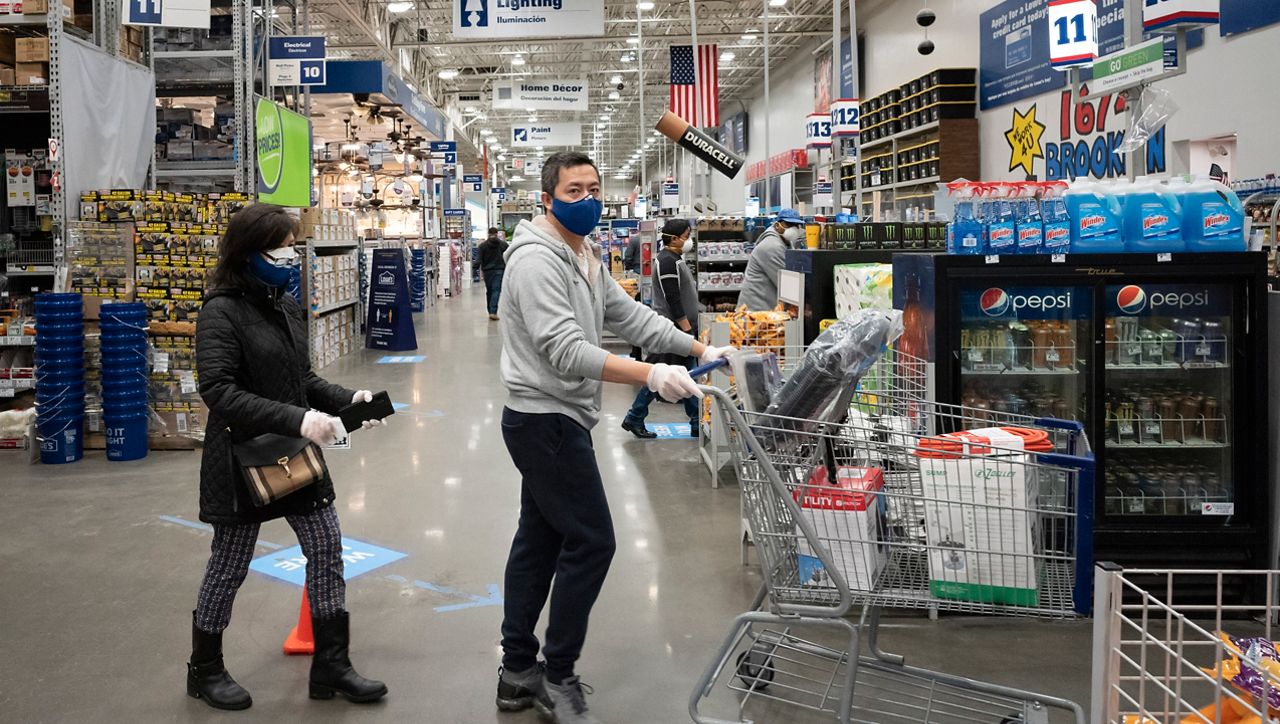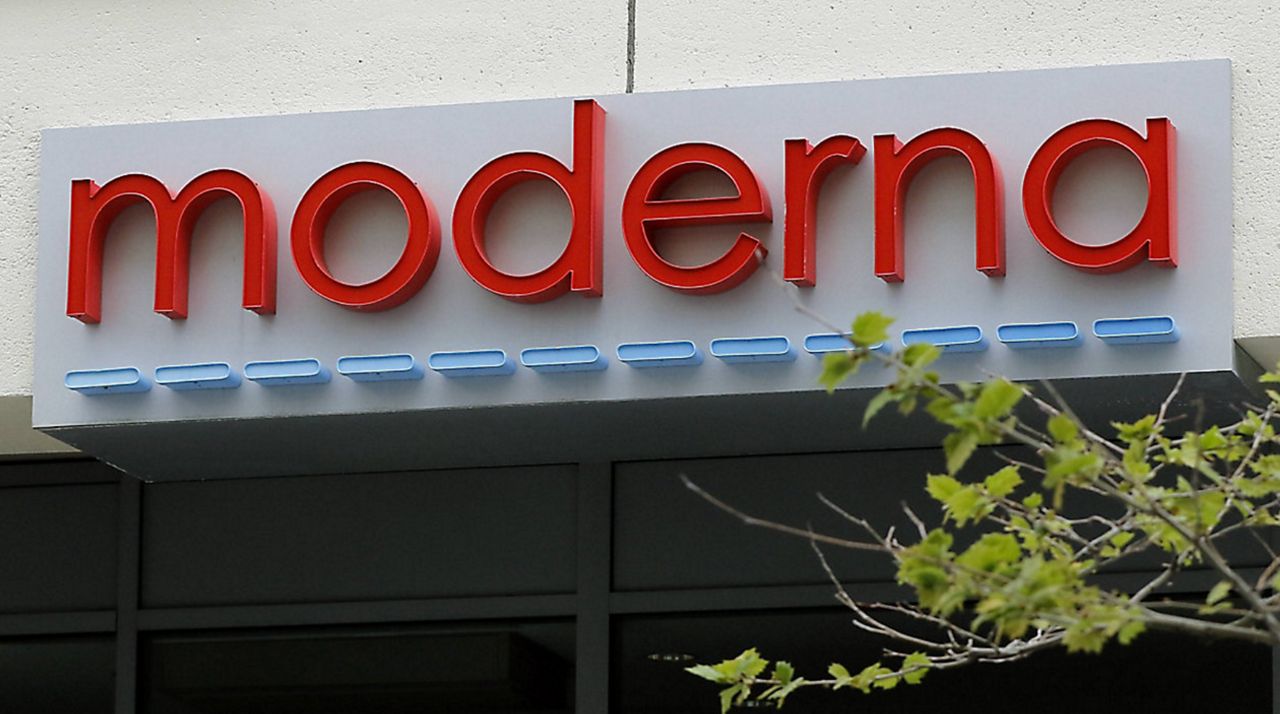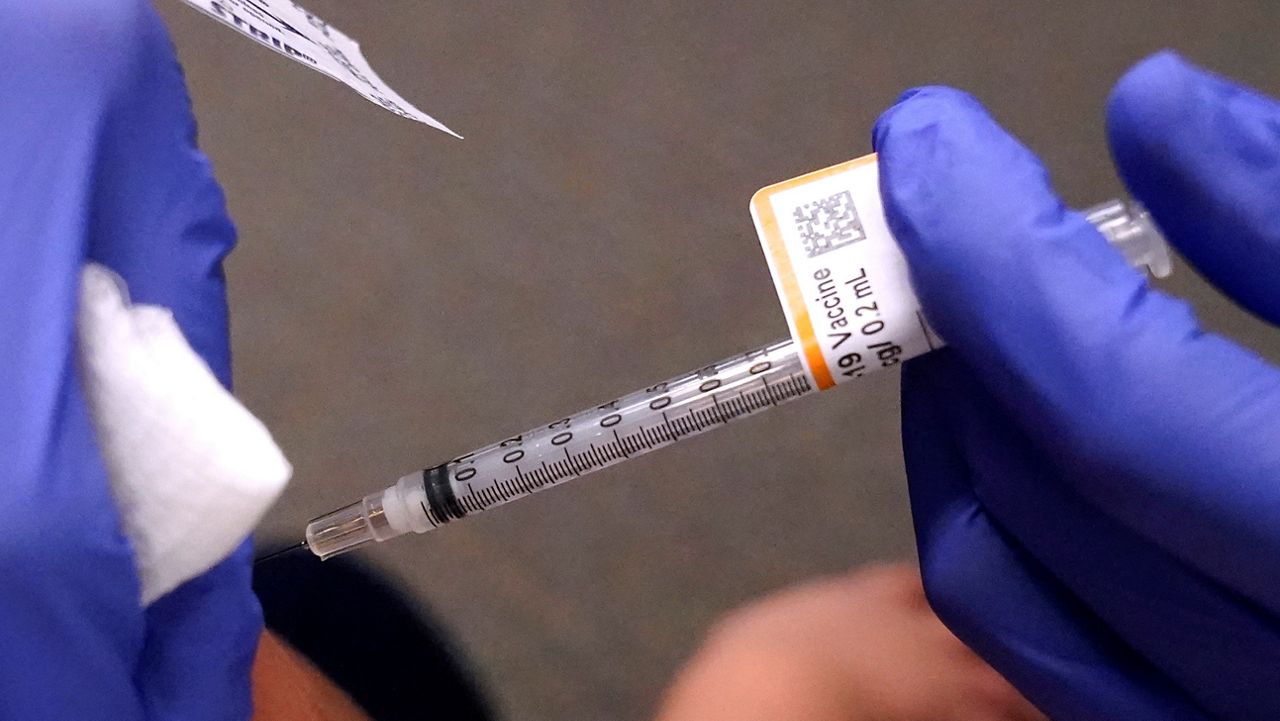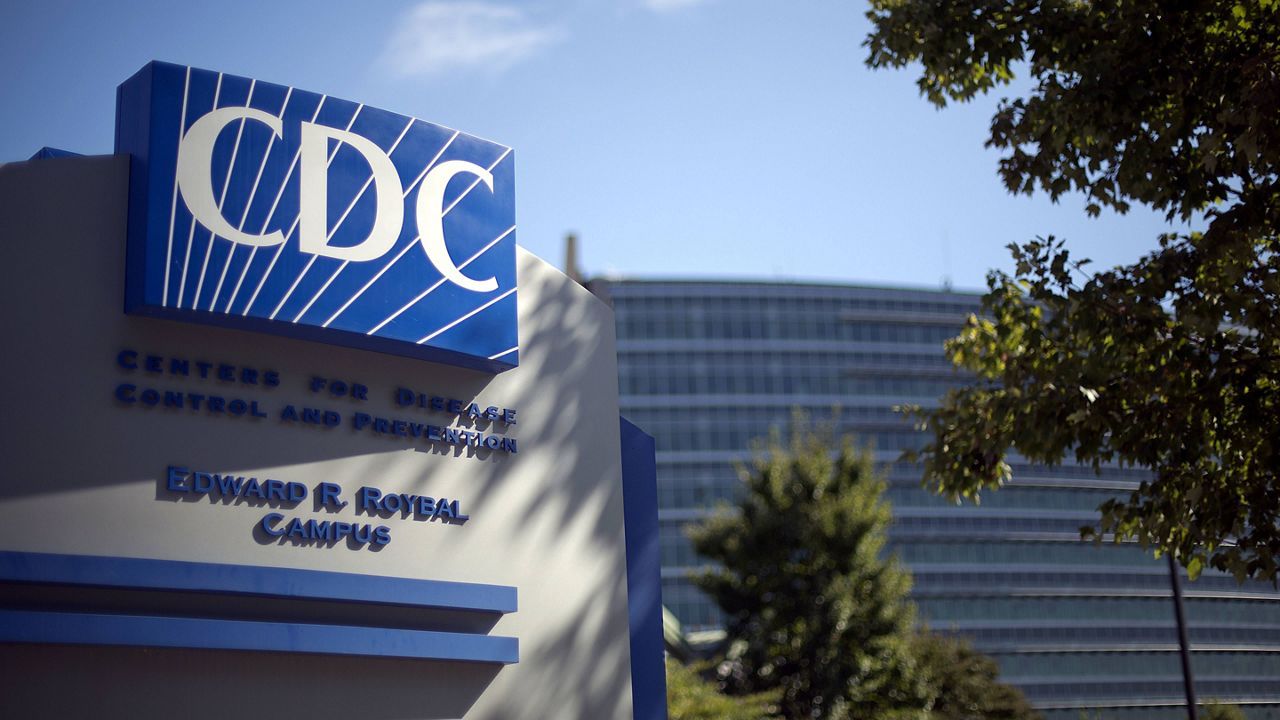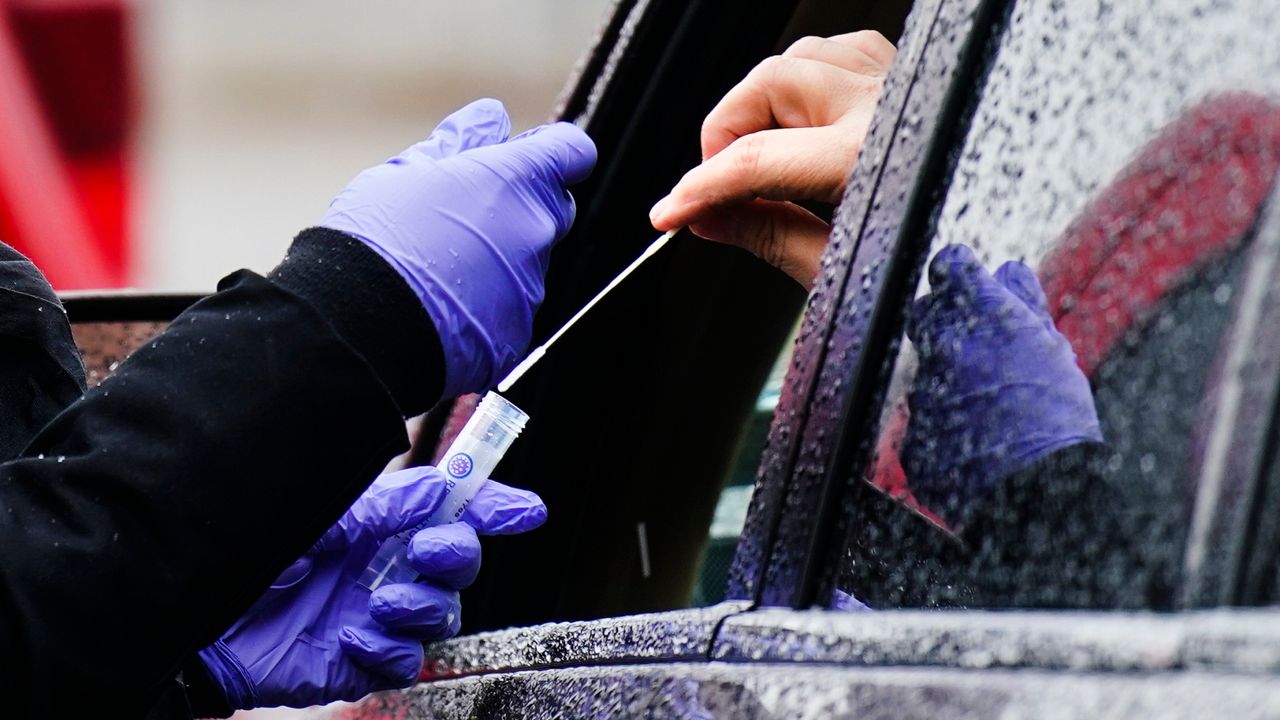With coronavirus cases continuing to increase in North Carolina, setting new records almost daily in recent weeks, Gov. Roy Cooper called on local and county governments to help enforce rules on wearing masks and occupancy limits for businesses.
Two high-profile incidents in recent days have shown that some businesses are not following state rules to slow the spread of the coronavirus.
A strip club in Charlotte had its liquor license suspended Friday after police allegedly found the club crowded and no one wearing masks.
Police in Raleigh cited a bar early Monday morning for going over capacity limits after a shooting there.
Some local governments are passing their own emergency orders to tighten enforcement of statewide mask mandates and limits on how many people can be in a business at one time.
In Buncombe County and Asheville, businesses can be fined or shut down temporarily for breaking coronavirus rules. Under an emergency order in Greensboro, businesses can be fined for not enforcing mask rules or capacity limits.
Announcing tighter mask mandates, last week, the governor said he hopes people will follow the rules on gatherings and wearing masks.
“If they don’t, the rules need to be enforced and we’re working with state and local governments to do just that. We don’t want to go backward, but we will if it’s necessary,” Cooper said. “The next seven to 14 days will tell us whether we are stemming the tide or whether we need to ratchet it up even more.”
Public health officials say 20 counties in North Carolina are listed as red zones, seeing “critical spread” of the virus.
Many of those counties are largely rural, including Alexander, Bertie, Columbus, Robeson and Yadkin. But Gaston and Guilford counties, with more suburban and urban areas, are also on that list.
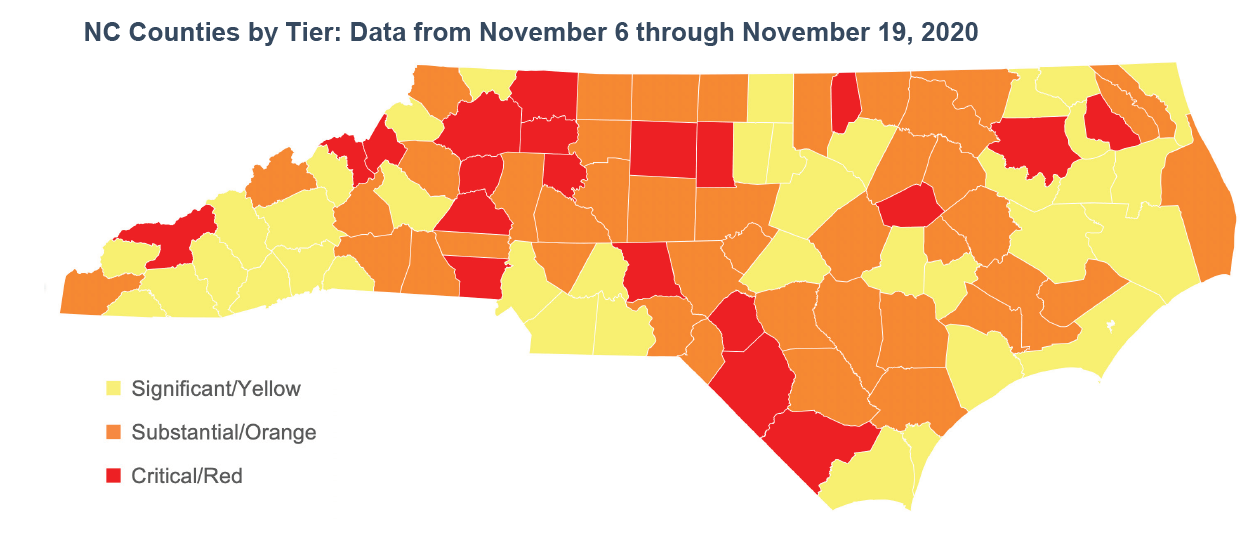
Counties are listed as critical based on a combination of case numbers, testing rates, and hospital impacts.
Cooper called on local governments and counties to increase enforcement. Greensboro Mayor Nancy Vaughan joined Cooper at his news conference last week to explain how her city, which is in a critical spread county, was increasing enforcement.
Businesses in Greensboro city limits will be given a warning for the first violation but then they can be fined $100 for every person over their capacity limit. They can also be shut down for 24 hours after the second violation.
If they are cited for breaking coronavirus rules a third time, they can be shut down for 48 hours, and 72 hours for a fourth violation.
“This enhanced State of Emergency does not include additional regulations,” the Greensboro mayor said in a statement. “This is an effort to reinforce existing regulations, allowing the city manager to deploy employees as needed.”
Asheville and Buncombe Counties, which do not have the same level of community spread seen in Guilford County, enacted similar rules as Greensboro.
“These measures may seem too strict to some and too loose to others,” Asheville Mayor Esther Manheimer said in a recent news conference.
They follow similar guidelines with fines and forced business closures for businesses that repeatedly go over capacity limits or allow staff or customers to violate mask mandates.
“Throughout the COVID-19 pandemic, the people of Buncombe County have done a good job,” Buncombe County Commission Chair Brownie Newman said during the joint news conference. “In spite of these good efforts, COVID-19 numbers are rising in Buncombe County.”
In the state Department of Health and Human Services’ tiered system, Buncombe County is listed as yellow under the color-coded system, with lower rates of people testing positive and low impact on hospitals.
"It's not fair to all of the residents and businesses in our community that have worked hard to keep their employees and customers safe to have other businesses ignore health and safety requirements," Newman said.





